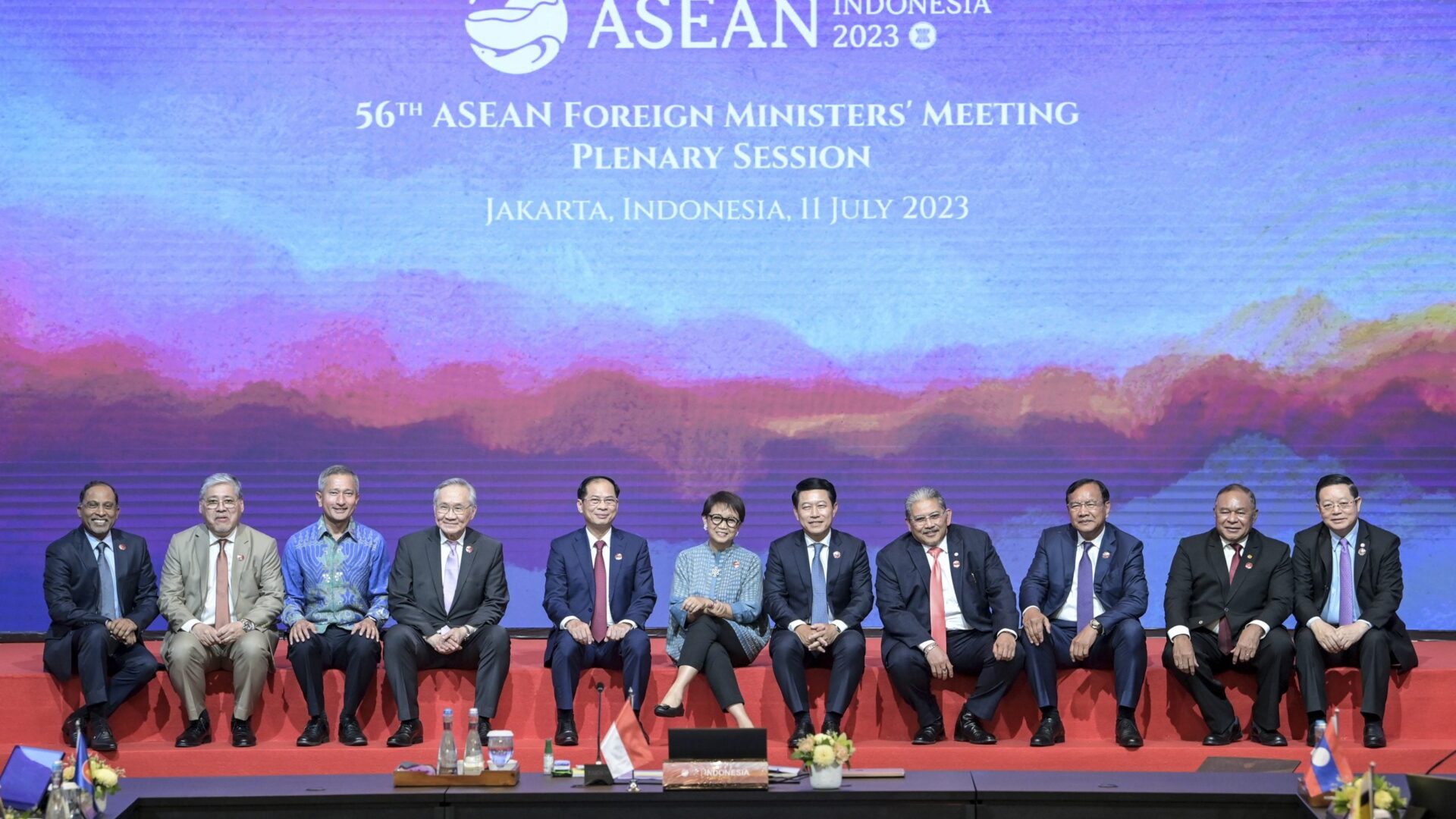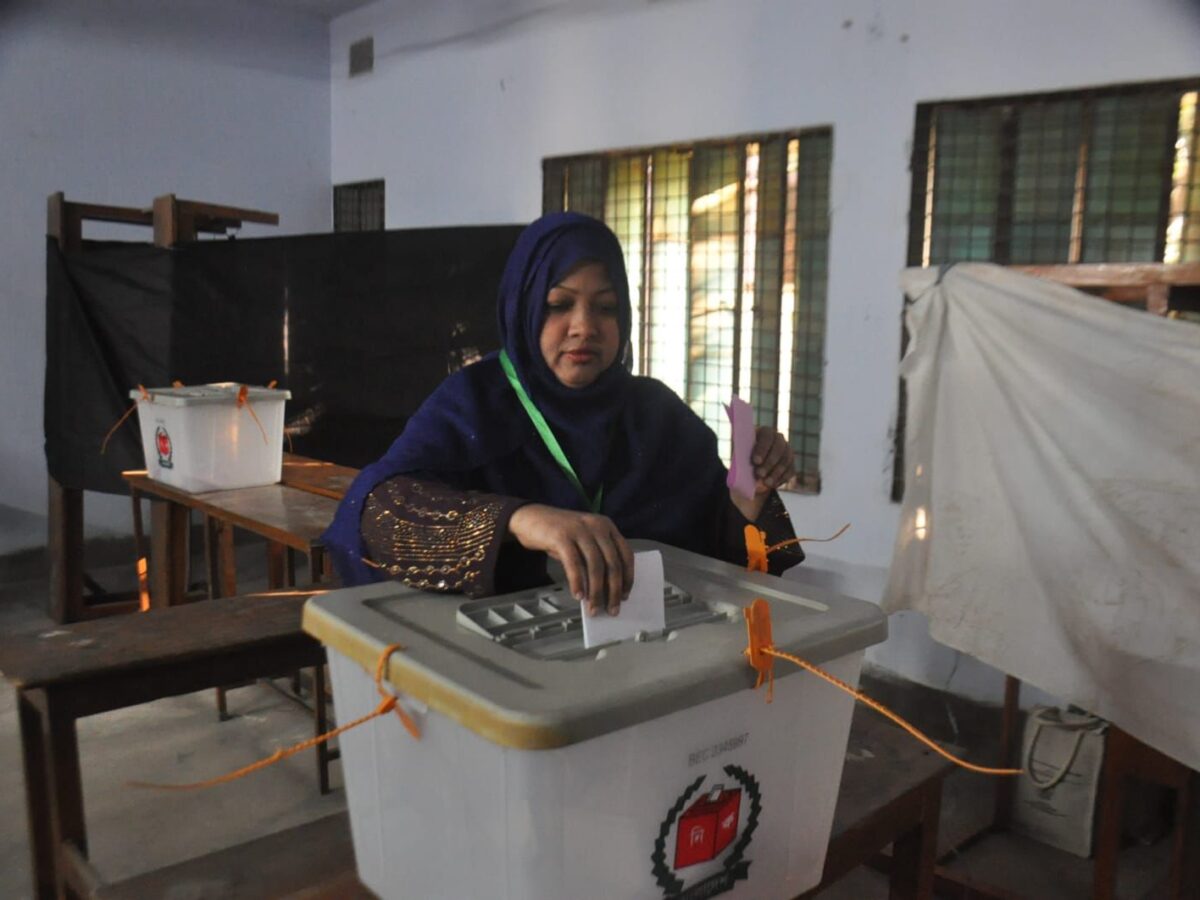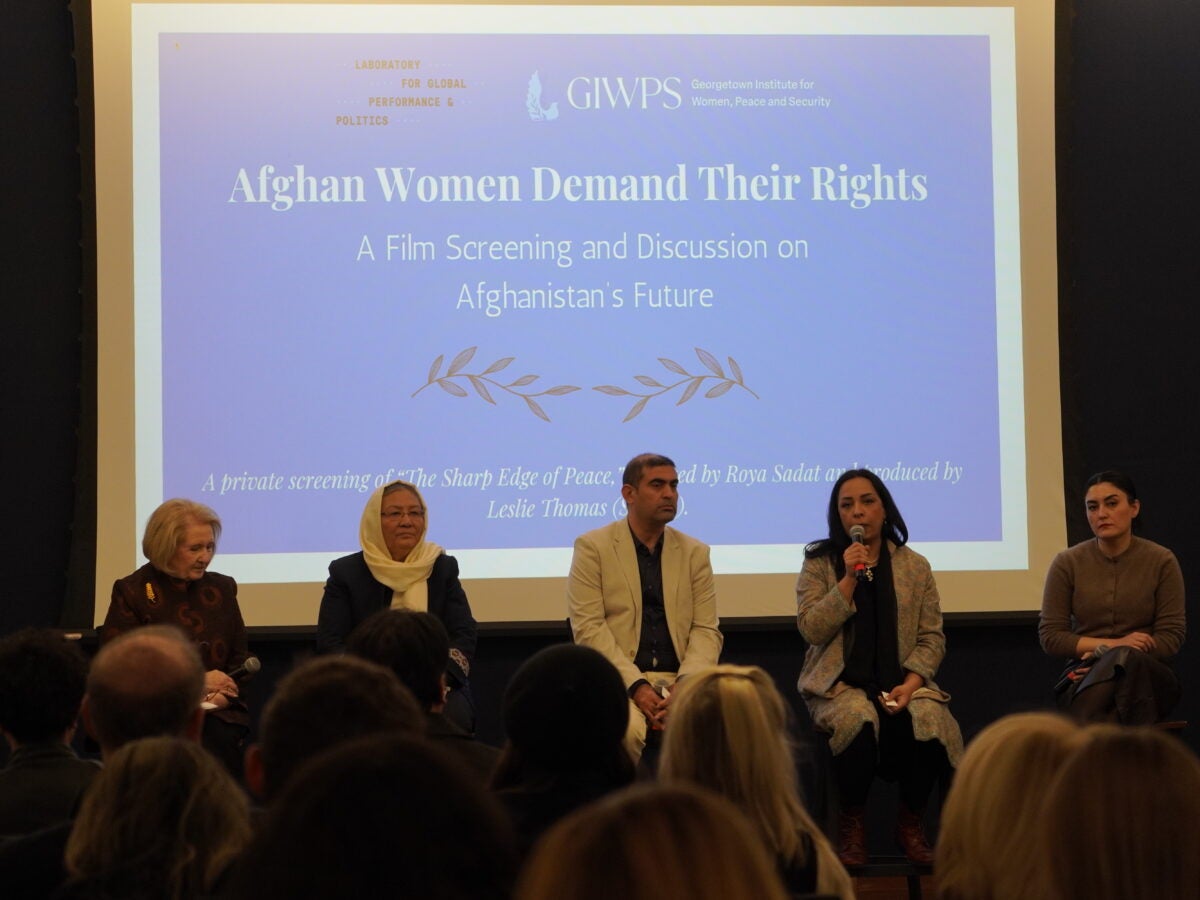ASEAN must prioritize women on the frontlines of the pro-democracy movement in Myanmar

The Association of Southeast Asian Nations (ASEAN) remains divided on how to address the crisis in Myanmar, as the situation continues to escalate and women and girls are increasingly threatened by gender-based violence (GBV) and conflict-related sexual violence (CRSV). While division grows among ASEAN members, the reality on the ground in Myanmar remains dire and continues to deteriorate, exacerbated by the junta’s obstruction of life-saving humanitarian assistance in the aftermath of Cyclone Mocha. Recognizing that women’s participation and protection is a necessary component of sustainable peace, ASEAN must work to support civil society leaders, including women human rights defenders (WHRDs), as part of their ongoing efforts to resolve the crisis in Myanmar. Women’s inclusion at all levels of decision-making is imperative to realizing peace in Myanmar.
ASEAN’s 56th Foreign Ministers’ Meeting
Foreign ministers from ASEAN met in mid-July in Jakarta, Indonesia to discuss, among other issues, the crisis in Myanmar. The deliberations highlighted divisions within the regional bloc on how to address the increasing violence and humanitarian abuses, specifically with regard to the benefits and consequences of diplomatically engaging the military junta. Indonesia, as ASEAN chair, reiterated the importance of implementing the Five-Point Consensus: an agreement between the junta and ASEAN that necessitates an immediate end to violence, constructive dialogue among all parties, the appointment of a special envoy, the provision of humanitarian assistance by ASEAN, and a visit by the special envoy to Myanmar. The junta has completely disregarded the agreement since its adoption. Unfortunately, discussions largely lacked consideration of women and girls despite their vital contributions to pro-democracy efforts. The role of Myanmar’s civil society organizations and WHRDs was strikingly absent from ASEAN’s agenda.
“I cannot help but have the impression that there are two different time zones when it comes to ASEAN and the crisis in Myanmar: one being the reality of the people of Myanmar who face daily attacks by junta forces and rapidly deteriorating conditions. The other is the world of ASEAN officials who caution that progress could take years, even decades.” – Tom Andrews, Special Rapporteur on the situation of human rights in Myanmar
The Impact on Women and Girls
As the crisis continues, women and girls face increasing risks of GBV and CRSV, especially WHRDs who compose over 60 percent of Myanmar’s human rights defenders. Since the attempted coup in February 2021, over 4,300 women have been arrested and over 3,600 are still detained in prison, where they are subject to torture and sexual violence. Online, users target politically active women with doxxing and false accusations, often resulting in physical violence offline, deterring WHRDs and peacebuilders from political participation and leadership roles which ultimately hinders peace efforts. Junta members commit these abhorrent acts of violence with impunity. Holding the military accountable for their crimes against humanity and human rights atrocities remains imperative for the cessation of violence and the restoration of democracy.
Women’s Participation in Myanmar
WHRDs and peacebuilders are on the frontlines in their communities, providing essential services to victims of CRSV and internally displaced people, delivering humanitarian aid to affected regions, and documenting human rights abuses. Local women’s organizations are using their expertise and relying on the trust of their communities to provide humanitarian assistance to conflict-affected and cyclone-affected communities. Despite this admirable work, the international community continues to fall short in providing the necessary resources to Myanmar’s civil society and local organizations. A recent report from Britain’s Foreign, Commonwealth and Development Office shows that the British government has cut aid to Myanmar by 70% since the coup. While women are at the forefront of Myanmar’s resistance, they lack the necessary political support and resources from the international community to sustain their integral work.
Calls to Action
As ASEAN continues to hold meetings and regional discussions on Myanmar, including at the upcoming Senior Officials meetings from July 31st to August 3rd, they must prioritize the meaningful participation of women and girls.
- ASEAN Member States should consider the concerns of women and civil society in their deliberations and support WHRDs to ensure the inclusion of women in all aspects of public life and decision-making.
- ASEAN foreign ministers should work directly with Burmese women and civil society to develop an implementation plan for the Five-Point Consensus and establish an accountability mechanism. With the proper support and resources, WHRDs and civil society are best positioned to monitor implementation and document violations.
Explore More

Reassessing Bangladesh’s National Election 2026
The Constitutional Referendum and General Election held on 12 February 2026 was…

Afghanistan’s new laws give animals ‘more rights’ than women

A Community Holding onto Hope: Georgetown Screens Documentary on the Fight for…
When the Taliban took over Afghanistan after U.S. troops withdrew in 2021,…